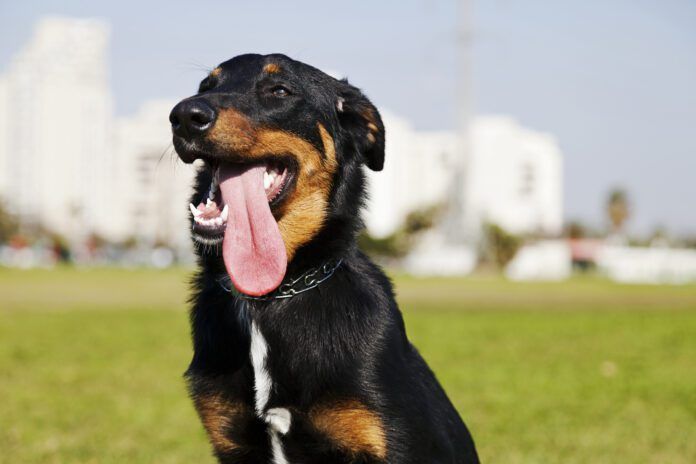While electrolytes are essential for proper bodily function, most healthy dogs do not require electrolyte supplementation unless they are experiencing significant fluid loss through vomiting or diarrhea.
Humans and dogs have different needs for hydration and electrolyte balance. Most healthy dogs do not require added electrolytes in their diet under normal circumstances. Understanding how dogs regulate their hydration and when electrolyte supplementation is truly needed can help you make informed decisions, especially during times of illness or extreme exertion.
Electrolyte Loss Through Dog Panting
Unlike humans, dogs do not sweat to regulate their body temperature. Instead, they pant. Humans lose a significant amount of electrolytes, including sodium, chloride, potassium, magnesium, and calcium, which is why replenishing them after strenuous exercise or heat exposure is so important for people. Dogs, on the other hand, lose minimal electrolytes through panting, which relies on evaporative cooling of saliva. As a result, giving electrolytes to dogs simply because they are active or because it is a hot day is generally unnecessary and can even lead to electrolyte imbalances if not used correctly. Avoid giving your dog “electrolyte water” or other homemade electrolytes. It’s just not worth the risk.
When Your Dog Needs Electrolytes
The situations where your dog may need electrolyte supplementation are specific. The most common scenarios include vomiting, diarrhea, or severe dehydration caused by illness or heat stroke. In these cases, dogs may lose a significant amount of fluids and electrolytes like sodium, potassium, and chloride, which can disrupt normal cellular function and overall hydration status.
For dogs experiencing these kinds of losses, veterinary-formulated electrolyte fluids, often administered subcutaneously, can help restore balance and support recovery. It is important, however, that any supplementation be done under veterinary guidance, especially for dogs with underlying medical conditions or for those on medications.
The Pedialyte Question for Dogs
Pedialyte, a popular electrolyte drink designed for humans, can sometimes be given to dogs in specific situations, but it should be used with care and fresh water should also be offered. If a dog is experiencing mild dehydration due to vomiting, diarrhea, or heat-related stress, Pedialyte may help replenish lost fluids and electrolytes. However, it is important to choose the unflavored and unsweetened version, as flavored varieties often contain artificial sweeteners such as xylitol, which is toxic to dogs, or added sugars that can upset their stomach further. Even the unflavored type should be offered in small amounts and, ideally, under the guidance of a veterinarian. Pedialyte is not a cure for the underlying cause of dehydration, so if your dog is lethargic, refuses to drink, or shows signs of worsening illness, professional veterinary care is crucial.
Betaine for Canine Hydration
An emerging area of interest in canine hydration is the use of functional ingredients like betaine, a naturally occurring compound found in foods like beets. Betaine acts as an osmolyte, which means it helps cells maintain fluid balance without disrupting normal cellular processes. In simple terms, it helps cells hold on to water more effectively, especially during times of heat or stress.
Unlike electrolyte supplementation, which addresses losses after the fact, betaine works by helping the body maintain hydration in the first place. This makes it particularly useful in scenarios where hydration is a concern, but electrolyte loss is not significant, such as for working or athletic dogs that may be under physical stress but not actively losing fluids through vomiting or diarrhea. By using products like betaine, you can optimize hydration status without unnecessarily loading the body with salts it does not need.
Remember, most dogs only require electrolytes when they are sick with vomiting and/or diarrhea. If your dog is sick, call your veterinarian to ask about electrolyte supplementation and work with the vet to create a plan of care for your pet.






